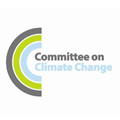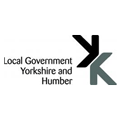News
Sustainable development is even more important in a time of austerity – SDC

| Date | Thursday, October 28, 2010 |
|---|---|
| Topic | Sustainable Development Governance & Civic Participation |
On Wednesday 20 October, the SDC presented evidence to the Parliament’s Environmental Audit Committee (EAC) as part of their investigation into how well sustainable development is being embedded in Government, in the light of Defra's decision to cut its funding for the SDC.
In his opening comments to the EAC hearing, the SDC's chief executive Andrew Lee said:
"The approach to sustainable development in the UK Government, and the Sustainable Development Commission itself, though by no means perfect, was widely admired across the world and regarded as a best practice leadership model.
"In 2012, the World’s governments will gather again to review progress since the first Rio Earth Summit twenty years ago. The event will focus on governance arrangements for sustainable development, and on the green economy. The spotlight will be on our progress in the last twenty years.
"Labour's approach to sustainable development started well under Tony Blair. However, he lost interest and the government failed to keep the momentum up on sustainable development, or to champion it consistently at a senior level. Furthermore, it did not secure its legacy on sustainable development as it did on climate change by virtue of the Climate Change Act.
"This means the whole approach to sustainable development is now in grave danger of being systematically unravelled just as we began the build up to the Rio+20 summit, when we will have the eyes of the world upon us.
"Sustainable Development principles are even more important in a time of austerity, when the size of the public sector is being reduced, than in one of plenty; because it forces thinking about the long term consequences of immediate policy decisions and their social, environmental and economic impacts.
"Many businesses, NGOs, and grassroots organisations are already way ahead of the Government on these issues. They will be deeply sceptical about promises to "mainstream" sustainable development, unless and until they see concrete and tangible measures being put in place. We have set out what we think these could be below.
"Removing the Sustainable Development Commission would be fine if it were crystal clear that new, and significantly better, arrangements have been put in place. If no such measures are in place, then it is an act of vandalism.
"As a Committee, the EAC will want to assure itself that any proposals being put forward for sustainable development in Government in the future really are a step forwards not backwards."
The EAC launched its inquiry into how sustainable development can be further embedded in Government policy decision-making and operations in the light of the Government's announcement that the SDC’s funding would be withdrawn in favour of mainstreaming sustainable development in Government. Announcing the decision on 22 July, Defra Secretary of State Caroline Spelman said: "We will mainstream sustainability, strengthen the Government's performance in this area and put processes in place to join up activity across Government much more effectively. I am not willing simply to delegate this responsibility to an external body. I have accordingly decided that I will withdraw DEFRA funding from the Sustainable Development Commission at the end of the current financial year, and instead take a personal lead, with an enhanced departmental capability and presence."
The EAC's inquiry set out to establish:
- How can mechanisms to ensure the sustainability of Government operations, procurement and policy-making be improved and further embedded and mainstreamed across Government departments?
- How can governance arrangements for sustainable development in Government be improved, and how can sustainability reporting by Government departments be made more transparent and accountable?
- Was the SDC successful in fulfilling its remit? Which aspects of its work have reached a natural end, or are otherwise of less importance, and which remain of particular continuing importance?
- In formulating a future architecture for sustainable development in Government, how can it take on board wider developments and initiatives (eg to develop 'sustainability reporting' in departments' accounts) and the contributions that other bodies might make (eg Centre of Expertise in Sustainable Procurement)?
- How, without the assistance of the SDC, will the Government be able to demonstrate that it is 'the greenest government ever'?
The Committee will publish its conclusions in report form at the end of its inquiry.
You may have found us by using the following keywords: Our Climate, Climate Change Partnership, Climate Change, Regional, Adaptation Sub-Group, Adaptation, Local Authorities, Strategy and Monitoring, Built Environment, Transport, Health Services, Business, Land Management, Citizen Engagement, Energy, Waste, Water, Carbon, Flood risk, Mitigation, Leadership, Low Carbon Products, Low Carbon Services, Zero Carbon, Integrated Regional Strategy, Yorkshire and Humber Strategy, Climate Change Act, Regional Adaptation Study, Climate Change Plan for Yorkshire and Humber, Climate UK, Regional Coordinator, Low Carbon Economy, Bio-mass, Carbon Capture, Microgeneration, Local Area Climate Change Network, YoHr Space, Climate Change Board, Impacts, Vulnerability, Opportunities, CO2, NI188, NI186, NI185, NI187, Temperature, Rainfall, Extreme weather






